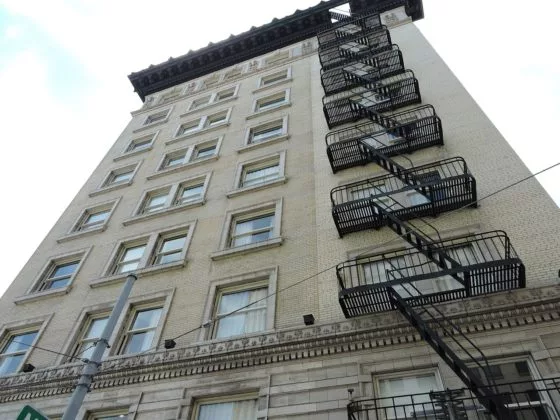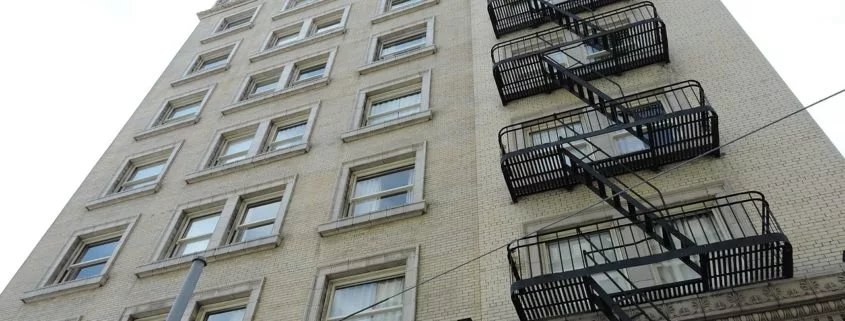California Tenant Rights: Your Security Deposit

When you rent an apartment in Southern California, the landlord will typically ask you for a “security deposit.” It’s a chunk of change they keep on hand for the duration of your lease and they’ll use it to pay for repairs if you damage anything. Otherwise, they return it to you after you move out. If you’ve ever rented an apartment, however, you know that it’s not always that simple — landlords often try to find ways to keep your deposit after you move.
So how do you make sure you get treated fairly? Here’s what you need to know about California tenant rights and your security deposit.
How much security can a landlord demand?
In some states, landlords can demand as much of a security deposit as they want. In California, there are limits. According to California landlord-tenant laws, your landlord can ask you for up to 2 months’ rent for an unfurnished apartment or up to 3 months’ rent for a furnished apartment. If you have a waterbed, they can ask you for an extra half of a month’s rent. Cal. Civ. Code § 1950.5(c).
What can my landlord use the security deposit for?
In theory, security deposits are meant to protect the landlord’s property and make sure that there’s enough cash to cover any necessary repairs after you move out. Under California tenant rights law, your landlord can use your security deposit to cover any “damage to the premises, exclusive of ordinary wear and tear.” Cal. Civ. Code § 1950.2. If you had a party and broke a window, for example, your landlord could use your security deposit to pay to replace the window. On the other hand, your deposit shouldn’t be used to pay for standard building upkeep, like a worn-down roof that needs to be replaced.
The security deposit may also be used to cover the cost of getting the apartment as clean as it was when you moved in or for unpaid rent (including if you broke the lease without giving appropriate notice or reasons).
How do I get my California security deposit back?
Once you or the landlord decide to terminate the lease, you can request that the landlord perform an initial inspection of your unit to check for damage. That inspection will happen during the last 2 weeks that you’re in the unit. The landlord will point out any issues so that you have the chance to fix them rather than having the repair costs deducted from your security deposit. You’ll get an itemized list of everything the landlord intends to pull from the security deposit. Cal. Civ. Code § 1950.5(f).
Within 21 days after you move out, your landlord must sent you the remainder of your security deposit along with an itemized statement of any deductions for repairs or other costs. You’re also entitled to a copy of any bills or invoices for those repairs so that you can verify the costs. If the repairs are going to take more than 21 days, your landlord can put a good faith estimate of the costs and then send you actual receipts with 14 days of completion of the repairs.
The only exception is if the total deductions were less than $125 — your landlord doesn’t have to send you copies of the bills and invoices for the repairs unless you specifically ask for them within 14 days after getting your deposit back. Cal. Civ. Code § 1950.5(g).
What if I don’t get my money back?
If your landlord doesn’t return the remainder of your security deposit (and the list of deductions, if necessary) within 21 days after you move out, the landlord forfeits the right to the security deposit. In other words, California tenant rights law says you get the whole deposit back, even if repairs were needed. Granberry v. Islay Investments (1995) 9 Cal.4th 738, 745 [38 Cal.Rptr.2d 650, 653].
However, it may be tough to get your landlord to comply with that law. Portman and Brown, California Tenants’ Rights, page 235-236 (NOLO Press 2010). You may send a letter to your landlord requesting the return of your deposit; it may have been nothing but an administrative oversight. If that doesn’t work, you may consider consulting a local agency to help you work with your landlord to come to a reasonable accommodation.
You also can sue your landlord in small claims court for the return of your deposit. Your landlord may countersue and claim part of the deposit to pay for repairs or other allowable expenses.
What if I disagree with my landlord?
If you believe your landlord charged you for something inappropriate, you should bring it up as soon as you get your deposit back. You may call your landlord right away, but you should follow it up with a letter asking for a refund of the amount you think is appropriate. Send it by certified mail so you have proof that the landlord received the letter. If your landlord doesn’t send the refund, you may try to negotiate a compromise that is acceptable to both parties. If that doesn’t work, you can sue in small claims court for a refund.
See also: California Tenant Rights: What to Do After Water Damage
Know Your California Tenant Rights
Landlords hold a lot of power over tenants, but California tenant rights law protect you and your security deposit. Rent is costly enough without losing your deposit, too. If you believe your landlord kept more of your security deposit than is allowed by law, you may want to consider taking legal action to get your money back. We can connect you with a local landlord-tenant attorney to explain your rights and options and help you protect your security deposit.
Are you in search for a certified attorney to represent you?
Let us help you find one today!



What if the repairs cost less than $126 or you waived your right to receive copies of invoices, receipts and any good faith estimate? The landlord still must send you an itemized statement 21 calendar days or less after you move, along with a refund of any amounts not deducted from your security deposit. When you receive the itemized statement, you may decide that you want copies of the landlord’s invoices, receipts and any good faith estimate. You may request copies of these documents from the landlord within 14 calendar days after you receive the itemized statement. It’s best to make this request both orally and in writing. Keep a copy of your letter or e-mail. The landlord must send you copies of invoices, receipts and any good faith estimate within 14 calendar days after he or she receives your request.